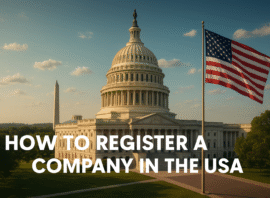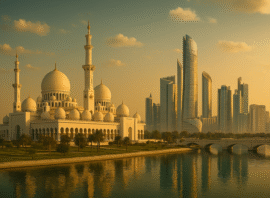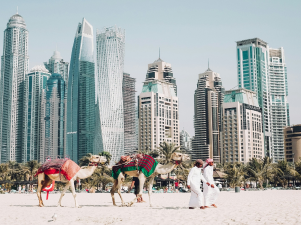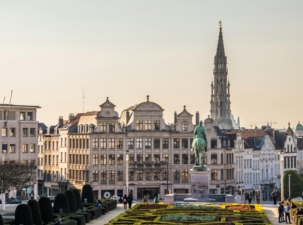Trading business in the UAE: how to start and grow
by indesoThe UAE remains one of the most attractive markets for launching and growing a trading business, thanks to its favorable tax regime, strategic location, and high consumer demand. The Emirates offer entrepreneurs access to international logistics, free economic zones, and numerous B2B events. However, success in the region requires a well-thought-out approach, local adaptation, and strategic scaling. In this article, we will examine the key steps that can help develop a trading business in the UAE and expand into new markets.
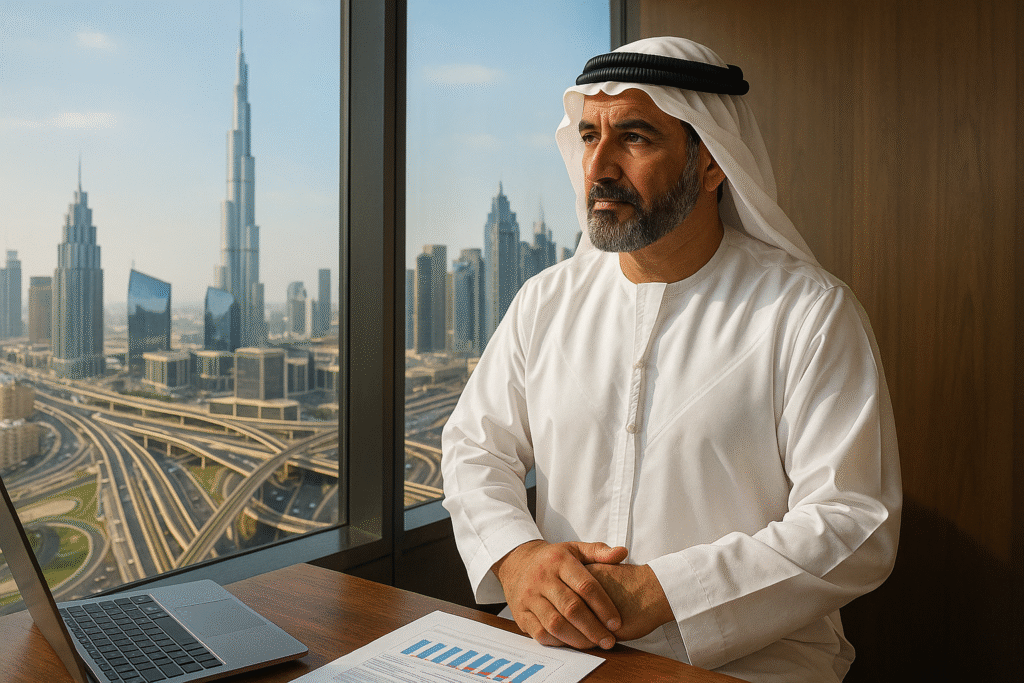
Why the UAE Is the Ideal Place to Start a Trading Business
Before moving on to the stages of business development, it is important to understand why the UAE provides a favorable environment for trade. The government of the United Arab Emirates actively supports entrepreneurship and foreign investment, offering businesses flexible operating conditions and transparent legislation.
Here are the main advantages that make the UAE an attractive jurisdiction:
-
Zero corporate tax in most free economic zones;
-
No VAT on international trade;
-
Modern logistics and world-class ports (for example, Jebel Ali — the largest port in the Middle East);
-
High consumer purchasing power and a growing e-commerce sector;
-
Ease of starting a business with proper legal support.
Stage 1: Market research and niche selection
The first step to success is gaining a deep understanding of the market and its characteristics. Despite the openness and global nature of the UAE economy, competition in trading can be high, especially in popular niches.
Key actions to take at the start:
-
Conduct a competitor analysis: Identify who is already operating in your niche, and evaluate their strengths and weaknesses.
-
Assess demand: Use marketplaces, social media, Google Trends, and local resources to understand consumer interest.
-
Choose a trading format: Decide between wholesale, retail, online, or a hybrid model.
Stage 2: Business registration
Proper business registration is the foundation for stable and legal operations. Depending on your trading model and target audience, you can choose a local license or set up a company in a free economic zone.
Key steps:
-
Choose a jurisdiction: mainland or free zone;
-
Obtain a trade license: depends on the specific type of products;
-
Open a bank account;
-
Obtain necessary permits and certifications.
It is important to understand: operating in the mainland allows direct trade with local clients, while a free zone is more suitable for international trade.
Stage 3: Finding suppliers and managing logistics
After registering your company, the next key stage is organizing the supply chain. The efficiency of your logistics and the reliability of your suppliers directly affect business stability, order fulfillment speed, and customer trust. In the UAE, where both international and domestic logistics channels are well-developed, a solid strategy is particularly important.
Key considerations:
-
Find reliable suppliers: This is not just about price. Reputation, order fulfillment times, flexibility in volumes, and willingness for long-term collaboration are crucial. Many entrepreneurs in the UAE work with suppliers from China, India, Turkey, and Europe, using international platforms and offline trade shows (e.g., China Home Life Dubai). At the same time, the local B2B market is increasingly valued for its ability to respond quickly to demand.
-
Customs clearance: The UAE’s customs procedures are relatively transparent but require accuracy and preparation. Importing certain product categories (e.g., cosmetics, food, electronics) requires prior registration and certification with relevant authorities such as Dubai Municipality, ESMA, Ministry of Health, etc. Mistakes at this stage can lead to delays, fines, or denied imports. It is especially important to consider differences between free zones and the mainland.
-
Warehouse and logistics model selection: Entrepreneurs have several options:
-
Renting space in a logistics hub (e.g., Jebel Ali or Dubai South);
-
Using 3PL providers (third-party logistics);
-
Operating a private warehouse.
Your choice depends on your business volume, product range, and trading format:
-
For B2C operations delivering across the UAE and Gulf countries, consider fulfillment services (storage, packing, and delivery).
-
For international trade, a warehouse near a port or airport is preferable.
-
For wholesale operations, it is often more advantageous to control inventory directly.
-
-
Integration with IT systems: Modern trading companies in the UAE actively implement ERP and WMS systems to track inventory, automate orders, and monitor shipments in real time. This helps prevent disruptions, reduce costs, and improve responsiveness to demand.
A well-organized and flexible logistics system is not just a “behind-the-scenes process.” It is a significant competitive advantage, enabling faster scaling, building customer trust, and minimizing operational risks.
Stage 4: Marketing and sales
Even a high-quality product will not sell without the right marketing. In the UAE, digital channels and offline promotion in high-traffic areas have proven particularly effective.
Key channels and tools:
-
Online advertising: targeted campaigns on Instagram, Google Ads, and local platforms;
-
Participation in trade shows: Gulf Food, The Big 5, GITEX, and others;
-
E-commerce platforms: Noon, Amazon.ae, Tradeling;
-
Collaborations: partnerships with local companies and influencers.
Adapting content for both Arabic and English-speaking audiences is critical — it helps build trust and increase conversion rates.
Stage 5: Business scaling
When a trading model starts delivering stable results, it’s time to think about scaling. This is the most critical stage, where it’s important not only to increase volumes but also to maintain manageability, service quality, and profitability. Scaling requires both financial and intellectual investments: you’ll need an experienced team, a clear strategy, and a flexible operational system.
Key approaches for effective growth:
-
Expanding product range and line:
One of the easiest ways to scale is by increasing the product selection, including complementary items and new categories. This allows you to better meet existing customers’ needs and increase the average order value. New products should align with your target audience’s expectations and logically extend your main product line. -
Entering new Emirates and Gulf countries:
If your business started in one emirate (e.g., Dubai), the next step could be expanding to others—Abu Dhabi, Sharjah, etc. Beyond that, you can export to GCC countries such as Saudi Arabia, Qatar, Oman, Bahrain, and Kuwait. This requires legal preparation, understanding new import requirements, and adapting marketing to local specifics. -
Opening additional sales channels:
Online sales provide a strong start, but for sustainable growth, consider offline options: showrooms, mall outlets, and participation in pop-up markets. Franchising is another effective way to scale quickly without increasing operational load. Many international brands in the UAE grow by allowing partners to operate under their brand. -
Attracting investments or strategic partners:
Additional funding may be necessary to accelerate growth. In the UAE, private investors, venture funds, and government programs for SMEs are available. Partnerships with local players can also help strengthen market position and quickly access new channels. -
Automation and process optimization:
Scaling is impossible without a systematic approach. Implementing CRM, ERP, logistics, and analytics tools is essential at this stage. This helps prevent operational chaos, manage growth without expanding staff, and make data-driven decisions. Regular process audits help identify weak points and improve the business selectively.
Conclusion
Developing a trading business in the UAE is not just about entering one of the world’s most promising markets—it’s also an opportunity to scale globally. Success depends not only on product quality but also on a deep understanding of local regulations, a smart marketing strategy, and strong partnerships. The Emirates provide entrepreneurs with powerful growth tools—it’s only a matter of using them effectively.
If you are planning to launch or scale a trading business in the UAE, turn to Indeso Consulting. We provide reliable support at every stage: from company registration to entering new markets. Start your business in the UAE with confidence in the results.
Popular
Related articles
Markets we study








